Judge Postpones Trump’s Hush-Money Sentencing Until September, as 45th President Declares ‘Total Exoneration’ From ‘Civil Hoaxes’
President Trump’s attorneys want the whole case thrown out based on the Supreme Court’s landmark immunity ruling.
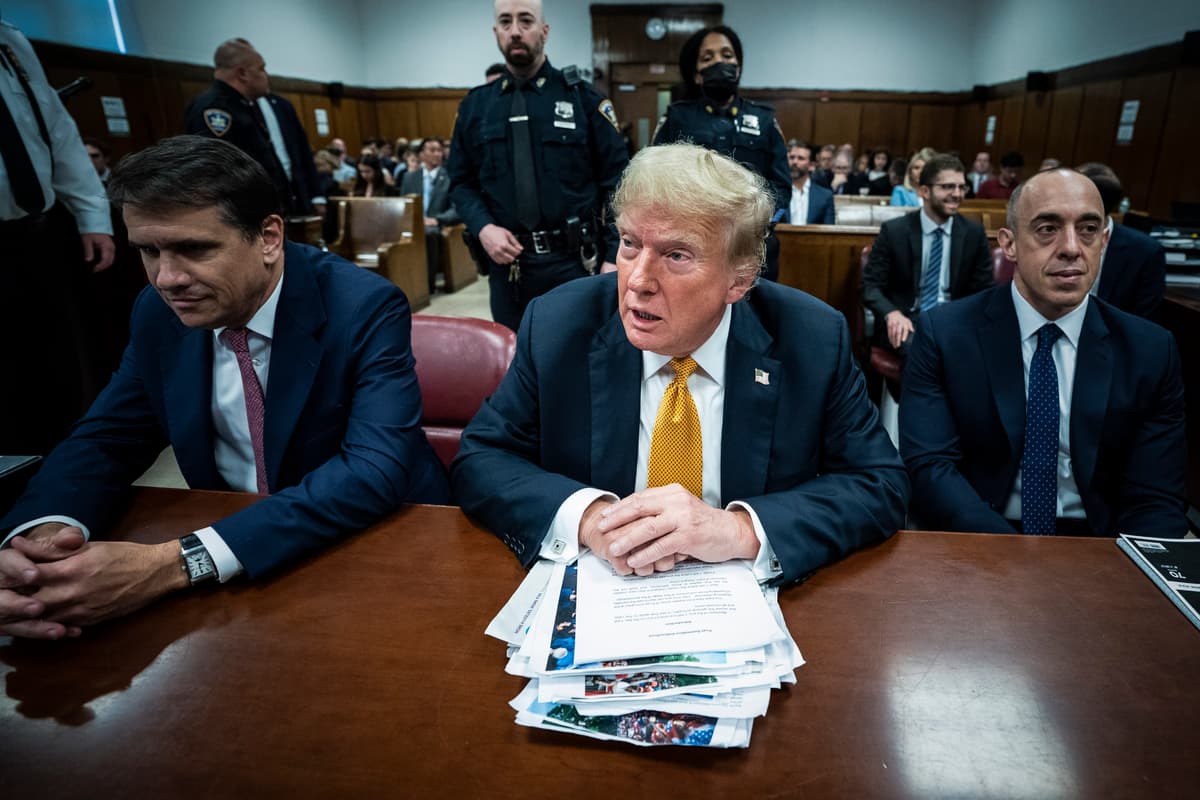
President Trump will not be sentenced in his hush-money case next week, the presiding judge, Juan Merchan, ruled on Tuesday, postponing the date to September 18, unless he decides to set aside the guilty verdict altogether.
In his letter to the parties, the judge wrote that he would decide whether or not to uphold Trump’s conviction in the criminal case in light of Monday’s Supreme Court ruling that presidents have broad immunity from prosecution for official actions by September 6.
“The July 11, 2024, sentencing date is therefore vacated. The Court’s decision will be tendered off-calendar on September 6, 2024 and the matter is adjourned to September 18, 2024,” the judge wrote, “for the imposition of sentence, if such is still necessary, or other proceedings.”
The decision to postpone the sentencing date comes as Trump claimed, on his social media platform, Truth Social, that the Nine’s ruling has put an end to the hush-money case successfully brought against him by the Manhattan district attorney, Alvin Bragg.
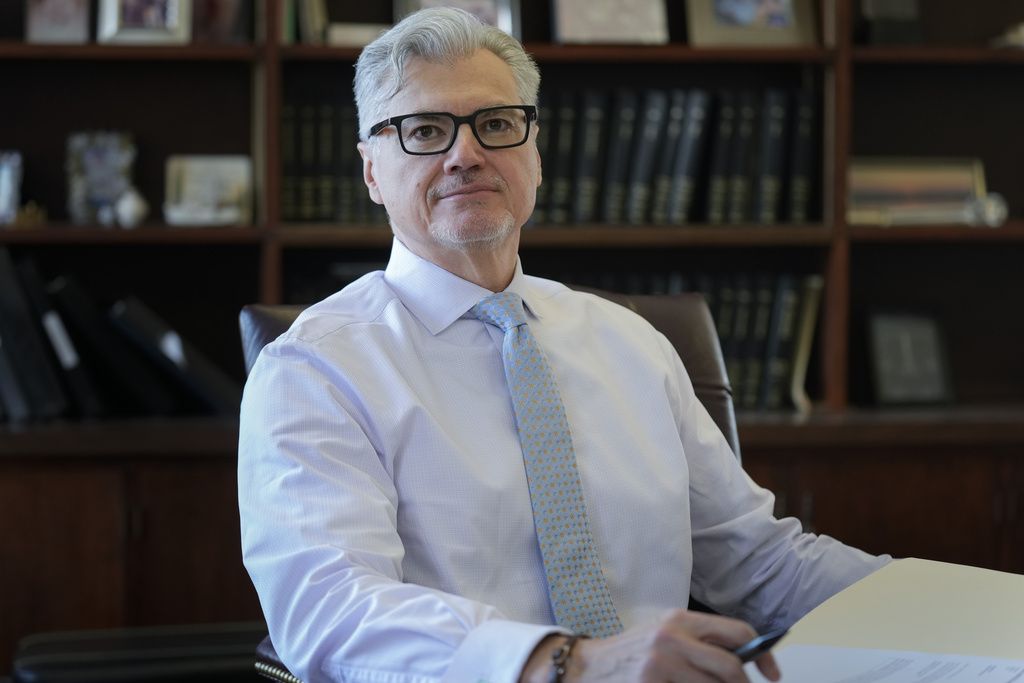
“TOTAL EXONERATION! It is clear that the Supreme Court’s Brilliantly Written and Historic Decision ENDS all of Crooked Joe Biden’s Witch Hunts against me,” he wrote, “including the WHITE HOUSE AND DOJ INSPIRED CIVIL HOAXES in New York.”
Judge Merchan granted the defense’s request to file a motion to challenge the verdict in the hush-money case by July 10. On Monday, just hours after the high court’s ruling, Trump’s attorneys had sent a letter to the judge, claiming that Trump’s conviction violates the immunity doctrine.
“The verdicts in this case violate the presidential immunity doctrine and create grave risks of an Executive Branch that cannibalizes itself,” defense attorneys Todd Blanche and Emil Bove wrote. “After further briefing on these issues,” they added, “it will be manifest that the trial result cannot stand.”
On May 30, Trump became the first former president in U.S. history to be convicted of a crime, when a jury found him guilty of 34 felonies. Mr. Bragg had charged Trump with falsification of business records in a scheme to interfere with the 2016 election. At the heart of the case was a $130,000 hush-money payment that his former personal lawyer, Michael Cohen, made to the adult film star, Stormy Daniels, whose real name is Stephanie Clifford, in 2016 to buy her silence about her claim that she had a single sexual encounter with Trump at a celebrity golf tournament at Lake Tahoe in 2006. The prosecution accused Trump of directing Cohen to wire the money to Ms. Clifford and then, while Trump was president, reimbursing Cohen with a payment described as a legal fee. Trump denies all the charges. At last week’s debate he said, “I didn’t have sex with a porn star.”
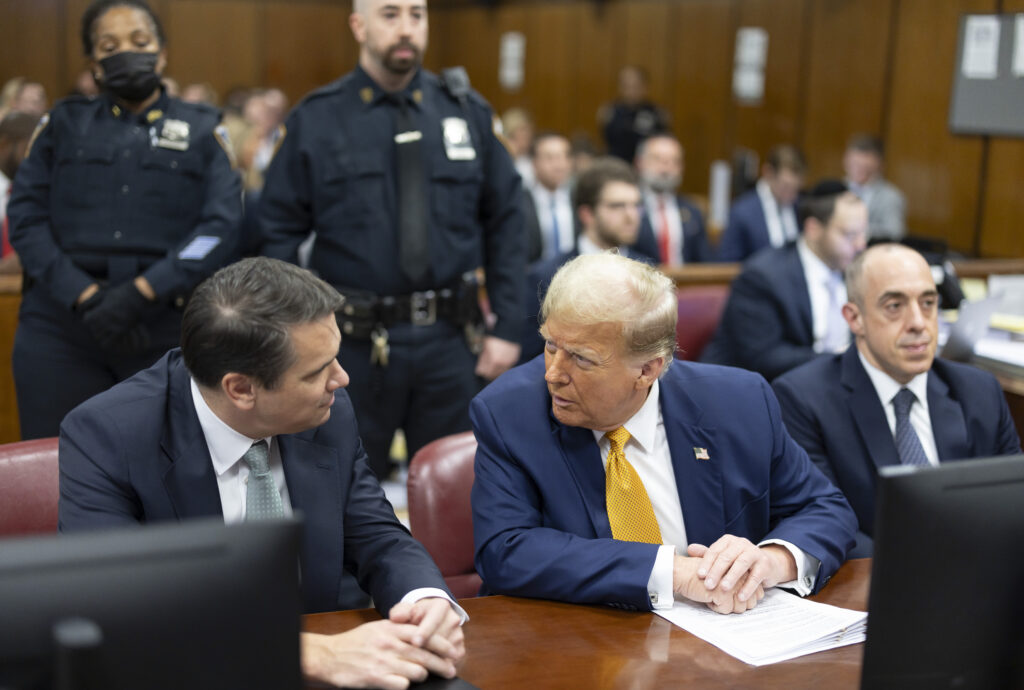
Trump’s attorneys argued that the ruling confirmed their position that Mr. Bragg should not have been allowed to offer evidence at the trial regarding Trump’s actions while president, which they argue are “official” acts. “This includes President Trump’s ‘Tweets’ and ‘public address[es],’” the attorneys wrote, possibly relying on a portion of the Supreme Court opinion that said, “Testimony or private records of the President or his advisers probing such conduct may not be admitted as evidence at trial.”
But Chief Justice Roberts wrote in a footnote that a “prosecutor may point to the public record” to support an argument. It is unclear if the court will consider Trump’s tweets and public speeches as “public records.”
Defense attorneys also questioned the validity of certain testimony given at the hush-money trial.
“At trial and during summations, DANY placed highly prejudicial emphasis on official-acts evidence,” the attorneys wrote referring to the Manhattan district attorney’s office, “including witness testimony regarding events in the Oval Office that DANY described as ‘devastating’.”

When Trump’s former White House adviser, Hope Hicks, testified during the trial in May, she told the jury that Trump said he preferred the story of his alleged affair with Ms. Clifford to become public, if that was unavoidable, after the 2016 election.
“I think Mr. Trump’s opinion was it was better to be dealing with it now, and that it would have been bad to have that story come out before the election,” Ms. Hicks testified. Prosecutor Joshua Steinglass called the testimony “devastating,” and referred to it during his closing argument.
“She basically burst into tears a few minutes — a few seconds after that because she realized how much this testimony puts the nail in Mr. Trump’s coffin,” Mr. Steinglass said, referring to Ms. Hicks, who had started to cry on the witness stand.
Testimony at the hush-money trial given by Madeleine Westerhout, Trump’s former Oval Office assistant, will also now be questioned by the defense. Ms. Westerhout testified about scheduling a meeting between Trump and Cohen in February 2017, while Trump was president, where, according to Cohen, the two men discussed the reimbursement for the hush-money payment. Cohen received the reimbursement, as part of a series of payments made to him by the Trump Organization for what Cohen claims were various services, in 2017.
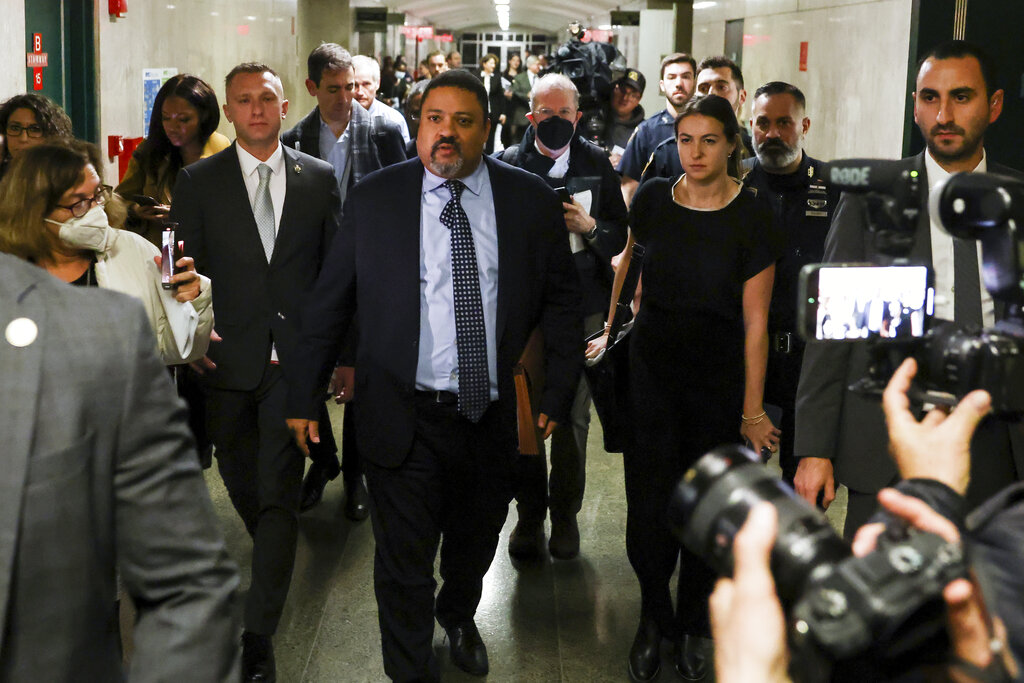
Convincing the court that the reimbursement was an official act may not be as simple as Trump’s attorneys hope. Last summer, Trump attempted to move the case from state to federal court, arguing that Mr. Bragg was submitting official-acts evidence, which related to Trump’s duties as president. But a federal judge rejected that argument.
“Even if I become a judge I can still write checks for my milk delivery. The court is capable of private acts as is the president,” federal district court judge, Alvin Hellerstein, said during the hearing in June 2023.
“The evidence overwhelmingly suggests that the matter was a purely personal item of the president — a cover-up of an embarrassing event,” Judge Hellerstein later wrote as he ruled that the case should remain in state court. “Hush money paid to an adult film star is not related to a president’s official acts. It does not reflect in any way the color of the president’s official duties.”
The Manhattan district attorney’s office agreed to postpone the sentencing on Tuesday and asked the judge to file their response motion by July 24, which he granted.
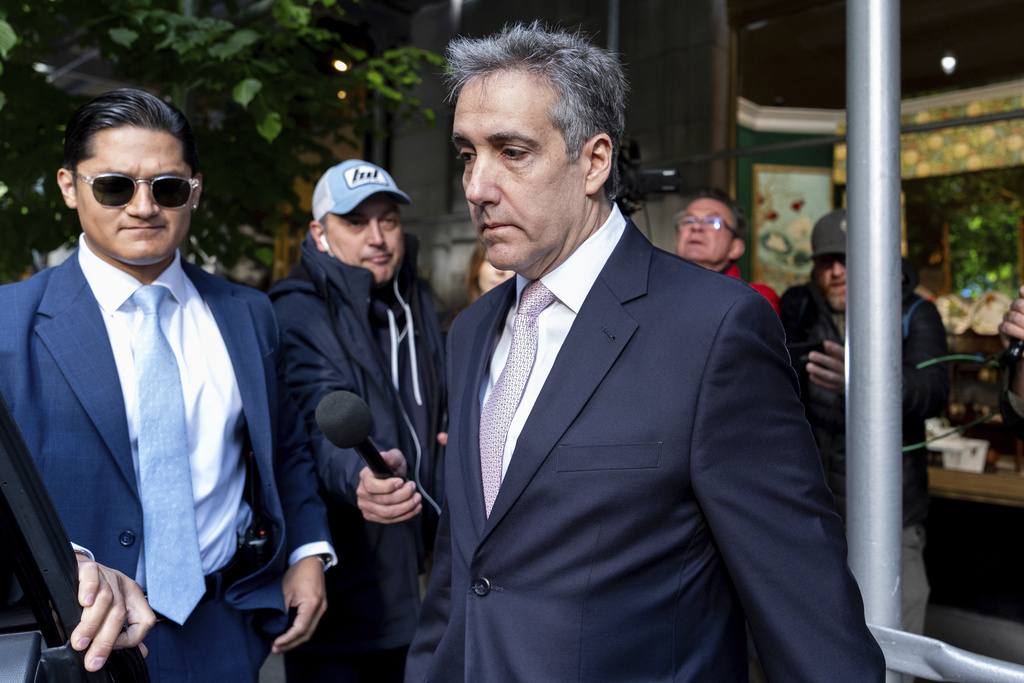
Tuesday afternoon, Trump further wrote on Truth Social that, as far as he is concerned, the high court’s ruling exonerates him from all the criminal charges levied against him by county prosecutors in New York and Atlanta, as well as from the federal prosecution by Special Counsel Jack Smith.
“It must be understood that I was Totally and Completely Innocent from the beginning of this Giant and Highly Illegal Scam long before the Supreme Court’s Decision was released,” he wrote.
Judge Merchan will render his decision on the matter by September 6, after the parties submit their arguments.

